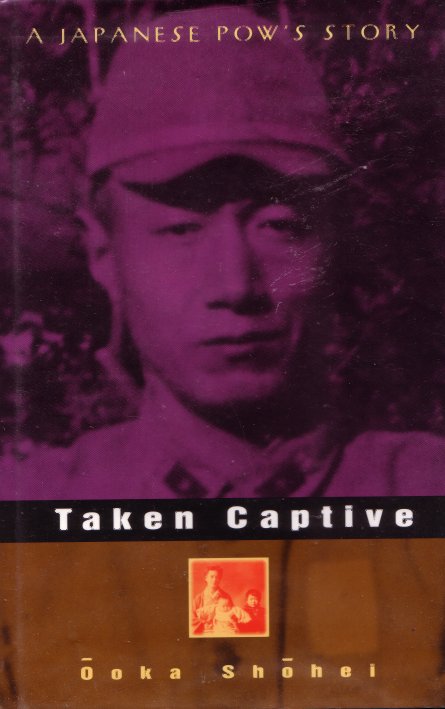
Taken Captive

The book is about a Japanese soldier who was taken captive in World War II. The book is quite an interesting one, especially the insights it gives into how Japanese soldiers thought.
Some of the noteworthy things:
He was captured on January 25, 1945. He was suffering from malaria and had dropped out of a group retreat, and was captured by American soldiers. I say that because the book shows how important the Philippine guerrillas were, and how many Japanese soldiers they either captured or outright killed.
He had given up on a Japanese victory, and held contempt for the General Staff of the military.
He had a chance to kill an American soldier, but didn't take it.
He might have killed himself, as did so many other Japanese soldiers, with their own hand grenade, but, in his case, his grenade was a dud.
He talks about how the soldiers kept diaries, and how these were found by the U.S. troops.
He doesn't think that the war could have been avoided.
Apparently at least some soldiers could bribe their way to advancement in rank.
In relation to the cruelty of the Japanese soldiers, he doesn't apologize. He says "...they [the abuses] are to be denounced because it is in those very abuses that we can find the cause of the army's defeat.""
He talks about how some Japanese officers were literally cannibals.
Even in the POW camps, certain Japanese "leaders" skimmed articles, stole things, and that includes food.
He refers to a soldier who had taken part in the Rape of Nanking, and says the guy "...had absolutely no awareness of having done anything reprehensible."
He also notes: "Our prevailing standards of monogamy seem to have inculcated in us an acceptance of rape and other sexual acts perpetrated against women."" He says that “too much” was made of the rapes in China, and that rape had been a tool of war for ages.
A lot of what he writes shows that the Americans took extremely good care of the POWs, at least in the camp he was in and others he knew about. The POWs were actually eating better and were treated better than those who in Japan, suffering under the U.S. firebombing raids.
He writes about how Japanese nurses in the military also served as comfort women for the soldiers, and they were required to "service" one soldier each day.
He is also anti-homosexuality.
All things taken into consideration, the book seems to show that, even though the writer was well educated and basically an intellectual, he wasn't really that upset at the atrocities that the Japanese soldiers had done. He even has some rather negative things to say about the subject of love in general.
Although this is an interesting book, I would not care to meet the author and I don't think he is "friend" material.
Main Index
Japan main page
Japanese-American Internment Camps index page
Japan and World War II index page
|